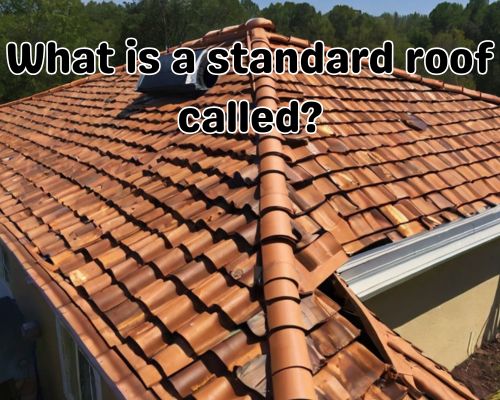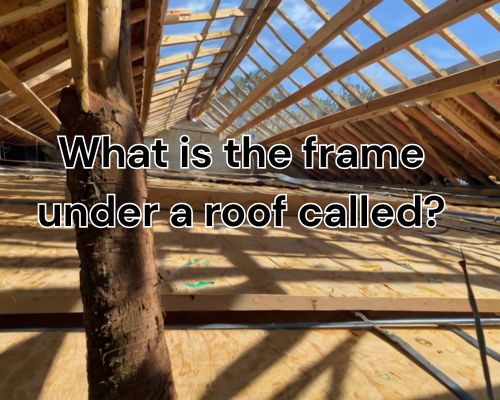What Is a Standard Roof Called? A Guide for Homeowners in West Palm Beach, Florida
In sunny West Palm Beach, Florida, the architecture reflects a vibrant blend of coastal charm and practical design. From breezy beachfront homes to upscale suburban properties, one element ties them all together: the roof. But when it comes to roofing, many homeowners find themselves asking, “What is a standard roof called?” This seemingly simple question opens the door to a world of roofing styles, materials, and regional considerations.

With Star Roofing, let’s dive into the details and explore what constitutes a standard roof, especially in the context of West Palm Beach’s unique climate and construction trends.
Understanding the Term: What Is a Standard Roof?
The term “standard roof” typically refers to the asphalt shingle roof in most parts of the United States. This roofing type has long been the go-to choice for residential properties due to its cost-effectiveness, ease of installation, and decent lifespan. But in places like Palm Beach County, “standard” may not always mean the same as it does in colder climates or inland areas.
Salient Entity: Asphalt Shingles
Asphalt shingles are composed of a fiberglass base mat coated with asphalt and topped with mineral granules. They’re known for their durability, affordability, and aesthetic flexibility—available in a variety of colors and styles to match the architectural vibe of homes throughout South Florida.
In West Palm Beach, these roofs are often modified or enhanced to withstand hurricane-force winds, heavy rain, and intense UV exposure, making them regionally optimized yet still widely considered “standard.”
Regional Considerations: Roofing in West Palm Beach, FL
Florida’s climate isn’t just sunny—it’s also storm-prone, humid, and heat-intensive. This environmental context influences what’s considered standard in roofing.
Local Salient Entities:
- Hurricane-resistant roofing
- Miami-Dade wind codes
- Reflective roofing materials
- Florida Building Code (FBC) compliance
In West Palm Beach, the term “standard” usually applies to roofing systems that meet minimum wind uplift resistance as defined by the Florida Building Code, especially with the city being in Wind Zone 4, where gusts can exceed 150 mph during storm season.
Therefore, while asphalt shingles are still the dominant roofing type, they are often reinforced with high-wind-rated fasteners, enhanced underlayment, and even synthetic felts.
Variations on the Standard Roof in South Florida
While asphalt shingles dominate the roofing landscape nationally, in South Florida, and especially in upscale or coastal neighborhoods in West Palm Beach like El Cid, Flamingo Park, or Northwood Shores, tile roofing is becoming increasingly common.
LSI Keywords to Integrate:
- Architectural shingles
- Roofing systems
- Tile roofing
- Hurricane-rated roofs
- Roof pitch and slope
- Thermal reflectivity
- Moisture resistance
Let’s take a closer look at the most common roofing types in the region and how they stack up against the idea of a “standard roof.”
Types of Roofs in West Palm Beach: A Comparative Snapshot
| Roof Type | Materials | Standard Use in WPB? | Key Benefits |
|---|---|---|---|
| Asphalt Shingles | Fiberglass & Asphalt | ✅ Yes, most common | Cost-effective, easy to replace, wind-rated |
| Concrete Tile | Cement-based tiles | ✅ Yes, in upscale areas | Durable, resistant to salt air, long-lasting |
| Clay Tile | Kiln-fired clay | ✅ Yes, historic homes | Aesthetic appeal, excellent insulation |
| Metal Roofing | Aluminum, steel | ⚠️ Gaining popularity | Lightweight, reflective, eco-friendly |
| Flat Roofing (TPO) | Thermoplastic membrane | ⚠️ For commercial use | Reflective, efficient drainage, low slope |
Although asphalt shingles are still considered the “standard roof,” concrete tile roofs are almost equally popular in newer developments due to their high performance under Florida’s climatic conditions.
Key Factors That Determine Roof Choice in West Palm Beach
1. Local Building Codes
The Florida Building Code dictates strict requirements for roofing underlayment, wind resistance, and flashing systems. If your roof isn’t FBC-compliant, it’s not up to standard by Florida definitions.
2. Wind Mitigation Discounts
Insurance providers in West Palm Beach often offer discounts for roofs that qualify as hurricane-resistant. This makes features like sealed roof decks, secondary water barriers, and roof-to-wall reinforcements part of what many now consider the “standard.”
3. Aesthetic and HOA Requirements
Communities like Ibis Golf & Country Club or The Bear Island community often have HOA mandates that define roofing materials and colors, which can shift what is “standard” within that neighborhood.
How to Know What Roof Type Is Right for You
If you’re a homeowner or property investor in West Palm Beach asking, “What is a standard roof called?”—the better question might be: “What roof is right for my property and local regulations?”
Here’s a quick checklist to consider:
- ✅ Is it FBC-compliant?
- ✅ Is it rated for Category 3+ hurricanes?
- ✅ Is it appropriate for salt air exposure (especially near the Intracoastal Waterway)?
- ✅ Does it match the style of your neighborhood?
- ✅ Can it reduce your home insurance premiums?
If the answer to most of these is “yes” and you’re choosing high-quality asphalt shingles or engineered tiles, you’re likely selecting a roof that qualifies as “standard”—and smart.
Final Thoughts: What Is a Standard Roof Called in West Palm Beach?
In a nutshell: the standard roof in West Palm Beach, Florida, is often an asphalt shingle roof, but it’s a regionally enhanced version—upgraded for high winds, rain intrusion, and insurance compliance. Yet, with the evolution of climate-conscious design and neighborhood-specific mandates, other roofing types like tile roofing and metal roofs are becoming contenders for the new “standard.”
So, the next time someone asks, “What is a standard roof called?”—you’ve got more than a one-word answer. You’ve got insights, codes, and coastal charm to back it up.
Need help choosing a roof in West Palm Beach? Contact local licensed roofing contractors who understand the Florida Building Code and specialize in storm-hardened installations. Whether you’re near downtown or out by the Palm Beach Lakes area, a professional roofer can help you match the perfect “standard” for your home.
💠🌐Let the sunshine in—but make sure your roof keeps the rest out.🛠️🏠
